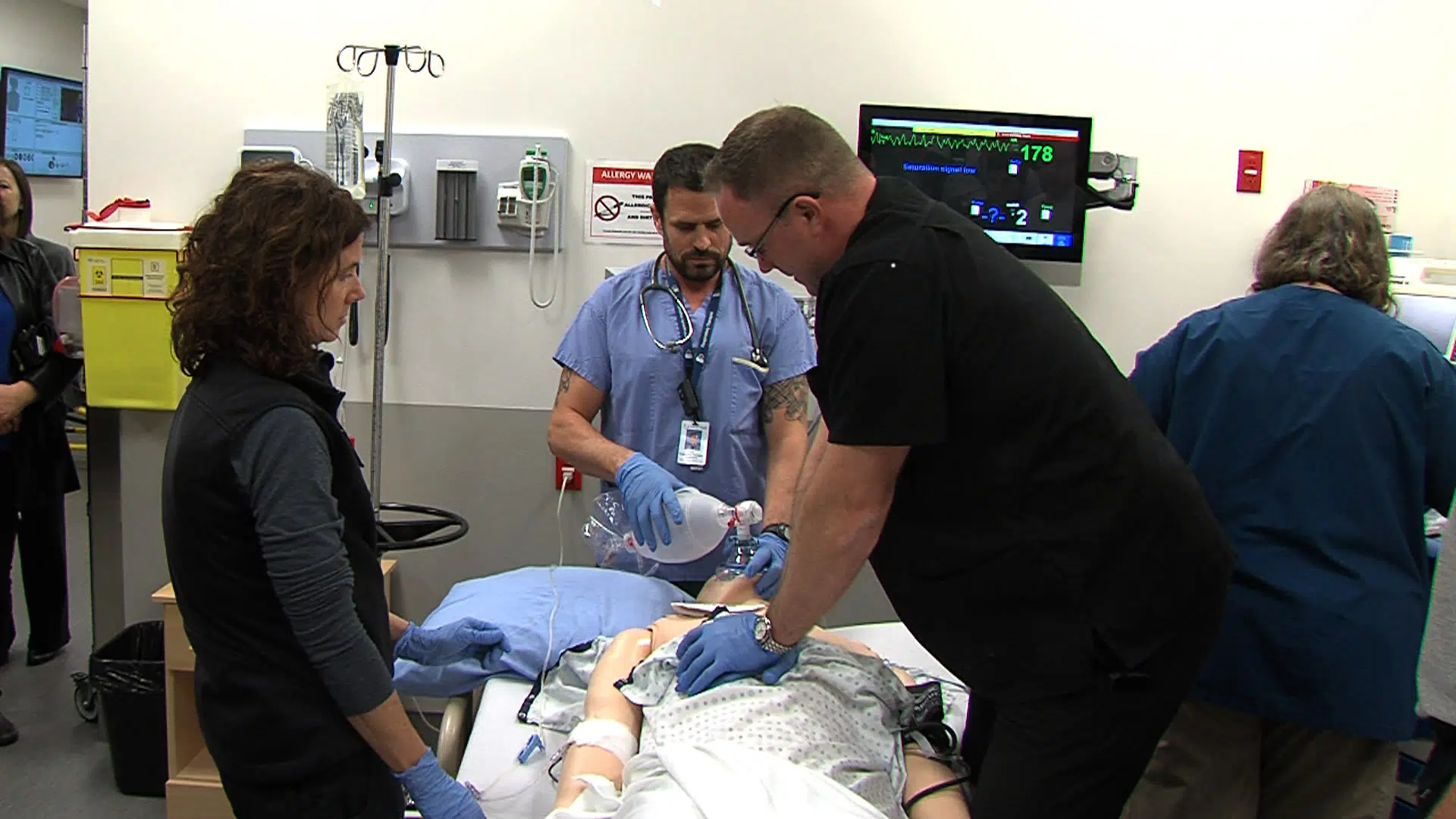
Brand-new simulator centre expected to save lives
KAMLOOPS — It’s an opportunity of a lifetime for medical students at Royal Inland Hospital.
Through a very generous donation, two patient simulators have been given to the hospital, allowing both student nurses and doctors to practice routine and emergency exams.
“We have two simulators,” said Tracy Canuel, Regional Knowledge Coordinator for Simulation. “We have one adult male and we have one pediatric simulator. They’re high-fidelity which means they’re controlled by a computer and they have heart sounds, breath sounds, they blink, can feel pulses.”


